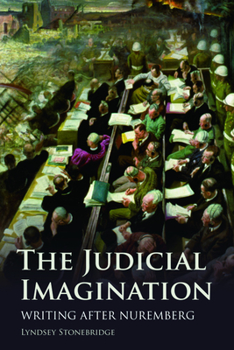The Judicial Imagination: Writing After Nuremberg
Select Format
Select Condition 
Book Overview
Tells the story of the struggle to imagine new forms of justice after Nuremberg.
Returning to the work of Hannah Arendt as a theoretical starting point, Lyndsey Stonebridge traces an aesthetics of judgement in postwar writers and intellectuals, including including Rebecca West, Elizabeth Bowen, Muriel Spark and Iris Murdoch. Writing in the false dawn of a new era of international justice and human rights, these complicated women intellectuals were drawn to the law because of its promise of justice, yet critical of its political blindness and suspicious of its moral claims. Bringing together literary-legal theory with trauma studies, The Judicial Imagination, argues that today we have much to learn from these writers' impassioned scepticism about the law's ability to legislate for the territorial violence of our times.





